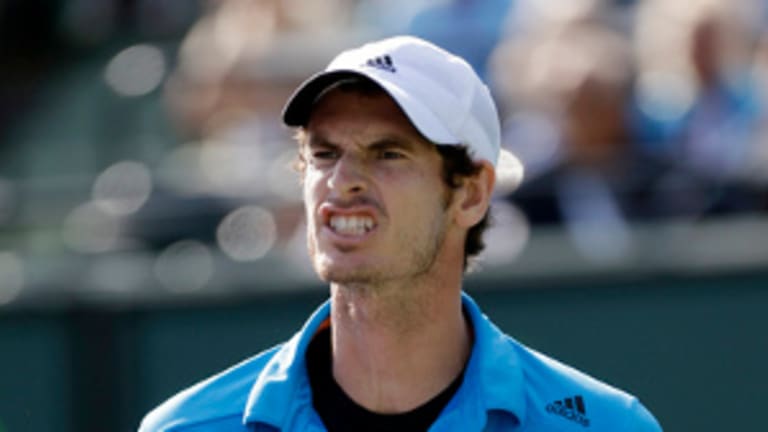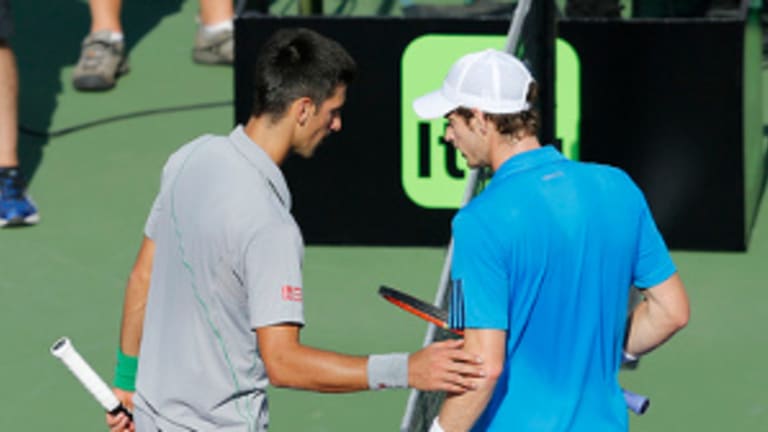Going into the fifth game of the second set, neither man had made much headway against the other’s serve. Murray appeared to have picked himself up and dusted off following the controversy that cost him the first set, so much so that he finally arrived at break point, just his second of the match.
Djokovic surprised Murray with a serve-and-volley, but Murray converted his second chance to pass with a backhand. He’d finally broken through and the long road back had suddenly turned from gravel to macadam.
But Murray then played an atrocious game, one he was unable to blame on infringement or anything else. He tossed in two double faults and lost the game on a weak backhand tacked into the netting.
Back on serve at 3-3, Djokovic held and promptly broke Murray for a second time. With that 5-3 lead, Djokovic played like Superman and won the match with a flourish, belting a down-the-line forehand winner to end it.
Murray’s dejection after the match was obvious. He broke with habit and appeared almost immediately in the interview room. While he spoke, he made only fleeting eye contact, preferring to spend most of the interval gazing into the space hovering about five feet above the heads of the assembled scribes.
“In the second set, I gave away a couple of free points, double faults,” he conceded. “And Novak, normally when you're serving you need to work pretty hard on your own service games and not give him any free points then. It swings in his favor. That was what happened, but I definitely had a bad game on my serve, maybe two.”
Djokovic had watched Murray’s outstanding win in the previous round over Jo-Wilfried Tsonga. He knew Murray was striking the ball well and moving well, and he ended up getting pretty much what he anticipated.
“I expected him to be a little bit more aggressive,” Djokovic said. “I tried to not allow him to be in the comfort zone, you know, because when he strikes (the ball in) that zone he’s maybe best in the world. . . (But) I think I was calmer in the important moments where he wasn't. He lost his composure, I think, and made unforced errors and allowed me to win.”
If that’s an accurate assessment (and for my money it is), the takeaway is that Murray still lacks that final measure of self-assurance as he continues to plough through his comeback from back surgery. Critics and pundits can analyze and/or criticize until they’re blue in the face, but Murray isn’t going to win big again until he himself feels he can, and whatever is going to make him feel that won’t be flowing from my or anyone else’s inkwell.
That helps explain why Murray professes to be content with his progress, reminding us: “I guess most players will tell you coming back from surgery takes time. It's just different to just having an injury for a couple of months. Surgery is a completely different thing.”

